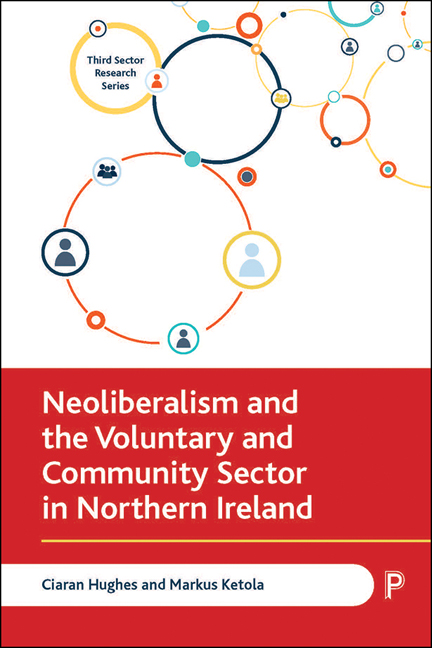Book contents
- Frontmatter
- Contents
- List of abbreviations
- Acknowledgements
- Series editor’s foreword
- one Introduction
- two Neoliberal enrolment? The ‘partnership turn’ in government rhetoric and policy
- three Getting connected: celebrating the value of connections and networks
- four Inside the networks: the rhetoric and the reality
- five Independence of voice, purpose and action
- six Conclusion
- Notes
- References
- Index
six - Conclusion
Published online by Cambridge University Press: 30 April 2022
- Frontmatter
- Contents
- List of abbreviations
- Acknowledgements
- Series editor’s foreword
- one Introduction
- two Neoliberal enrolment? The ‘partnership turn’ in government rhetoric and policy
- three Getting connected: celebrating the value of connections and networks
- four Inside the networks: the rhetoric and the reality
- five Independence of voice, purpose and action
- six Conclusion
- Notes
- References
- Index
Summary
The previous chapters have captured how NI's VCS has had a privileged role in the governance of the region as a result of direct-rule efforts to fill the political vacuum and build some kind of connection with the governed, and as a consequence of devolved administrations’ belief that a ‘vibrant and extensive’ VCS would bring certain advantages. Its position was secured by the development of close relationships between VCS elites, civil servants and funding bodies, a huge flow of resources into its coffers and a narrative that celebrated the sector as the ‘glue holding society together’. The VCS came to see itself as a representative forum, with a myriad of funded organisations claiming to speak on behalf of a range of groups and communities. It has been placed at the heart of efforts to refresh civil society–government relations and it has been hailed as the source of innovative solutions to complex problems. The VCS and government promoted the idea that the sector is a wealth of knowledge, and both made the claim that the sector could build trust within and between communities and provide a voice for marginalised communities. To shore up its vacuumfilling role, the VCS has been the beneficiary of extraordinary funding packages, and a service-delivery sector has run alongside a well-funded peace industry. The VCS became central to the delivery of strategies that promised to tackle community divisions, close the gap between the most deprived neighbourhoods and the rest of society, and deliver marginalised communities their share of the ‘peace dividend’.
At the grassroots, the VCS can be the locus for the development of a sense of belonging in communities, and networked relationships allow the sector to draw resources into some of the most deprived and conflict-torn communities. In some areas, the VCS has been a site for stimulating economic development, better community relations, employment, training and education opportunities, and without romanticising such initiatives, the research literature is beginning to capture the ways in which they may offer ‘alternatives to sectarian, neoliberal or state hegemonies’ (Murtagh, 2018, 456).
- Type
- Chapter
- Information
- Publisher: Bristol University PressPrint publication year: 2021



